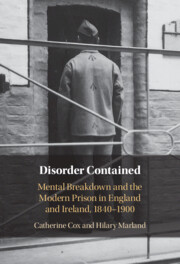This article examines how a branch of medicine based within the criminal justice system responded to a society which by the 1970s and 1980s was increasingly critical of the prison system and medical authority. The Prison Medical Service, responsible for the health care of prisoners in England and Wales, was criticised by prison campaigners and doctors alike for being unethical, isolated, secretive, and beholden to the interests of the Home Office rather than those of their patients. While prison doctors responded defensively to criticisms in the 1970s and 1980s, comparing their own standards of practice favourably with those found in the NHS, and arguing that doctors from outside would struggle to cope in the prison environment, by 1985 their attitudes had changed. Giving evidence to a House of Commons committee, prison doctors displayed a much greater willingness to discuss how the prison system made their work more difficult, and expressed a pronounced desire to engage openly with the rest of the profession to address these problems. The change of attitude partly reflects a desire by the Home Secretary William Whitelaw to make the Prison Service more open, and an acceptance of a need for greater accountability in medicine generally. Most important, however, was a greater interest in prison health care and appreciation of the difficulties of prison practice among the wider medical profession, encouraging prison doctors to speak out. This provides a case study of how a professional group could engage openly with criticisms of their work under favourable circumstances.


